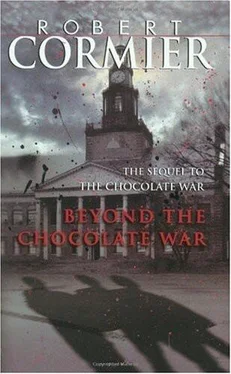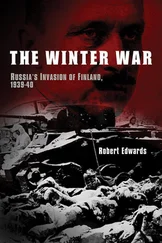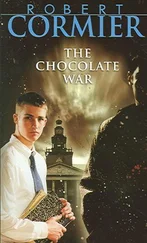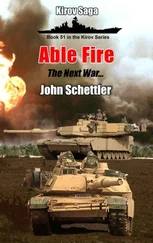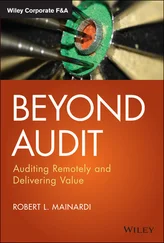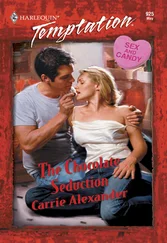"Let's not talk about it anymore," he said, wondering if he had called too soon, whether he should have waited, whether he should never have called. Desperate to get away from the subject, he searched for another subject, seized one: "You still running, Goob? You were all out of breath when you answered the phone."
"Right. I didn't run for a long time, but I started again."
"I'd like to run," Jerry said, glancing around the room at the sterile furniture, not home, really, but like a waiting room in a doctor's office or air terminal.
"Hey, you always hated running," Goober chided.
Jerry responded to the Goober's good-natured jibe.
"I know — but it feels so good when you stop. Like hitting yourself on the head with a hammer. . "
They both exploded with laughter. His remark hadn't been that funny, but Jerry sensed that they needed to grab on to something to bring them together again. Like old times.
"Want to run again? With me?" Goober asked.
"Why not? I need the exercise."
"Tomorrow afternoon?"
"Sure. ." Jerry hesitated. "On one condition, Goob. No more talk about what happened. No more of that stuff—"
"Okay, okay," Goober said. "I give up. But get ready for tomorrow, Jerry. I'll run you ragged. . "
"Tomorrow," Jerry said, hanging up, weak with relict, breathing his thanks. His thanks to whom? God, maybe, thinking of the Talking Church in Canada.
Obie spotted the slashed loafer with the dangling buckle at a moment when he was not looking for it. Climbing the stairs to the third floor for the final class of the day, forced along by the between-classes stampede of students, Obie was engrossed in his thoughts, barely aware of the press of bodies. About the two tests today he had either flunked or scored no higher than a D on, thus falling further behind in his studies. Angry thoughts. Angry at his parents and all grown-ups who thought that school life was a lark, a good time, the best years of your life with a few tests and quizzes thrown in to keep you on your toes. Bullshit. There was nothing good about it. Tests were daily battles in the larger war of school. School meant rules and orders and commands. To say nothing of homework.
The loafer appeared before his eyes without warning, so unexpected that his brain did not immediately register the sight. His brain was still concerned with this lousy life called high school, adolescence, the teen years. But then: the loafer. The cruel slash across the instep. He stopped in his tracks, one foot on the step above him, the other in midair as his brain intercepted what his eyes had recorded.
"Wait a minute," he said.
Nobody among the rampaging students coming and going up and down the stairs heard his words or paid attention.
Obie sprang into action. The guy wearing the loafer had been coming down the steps: At one point the shoe had been at his eye level. Turning, looking below, he spotted a familiar figure hurrying across the second-floor corridor, trying like everyone else to beat the final bell to the class. Torn between getting to his own class on time (he'd already been tardy once today) and tracking down his quarry, Obie threw caution aside. His life depended on that loafer: the hell with being late for class. The hell with everything else. He set off in pursuit, going against the mainstream now, darting in and out of the streaming students, getting jabs in his ribs from sharp elbows.
He caught up with the student (he was almost sure of his identity, had recognized him from behind but had to be absolutely certain, without a shadow of a doubt, because this was life and death now, not fun and games) at the doorway to Room Nineteen. Ironic, of course. Putting on the brakes, his own shoes skidding on the wooden floor, he almost crashed into the guy. Looking down, he confirmed the evidence. Yes, the loafer was slashed, the buckle was loose. He looked up again as the kid, perhaps sensing his scrutiny or hearing the skidding arrival of someone behind him, turned around and regarded him. Full face.
No doubt now. No doubt at all.
Cornacchio, the sophomore. Bunting's stooge.
The bell rang, splitting the air as Cornacchio, after a hurried, puzzled look at Obie (but was it puzzled or more like horrified?) jammed through the door, shouldering his way between two other students.
Obie remained alone as the corridor emptied and the doors slammed shut. Stood there, caught and held, his heart like the ticking of a bomb about to explode.
The fever that coursed through his body now made him sharp and alert He had gone beyond fatigue and 'exhaustion into a land of hyper state, senses sharp, body on the alert, a new energy pulsing with the beat of the fever. He used all the old strategies and methods that he had learned during his years as Archie's right hand, setting up the assignments, compiling his notes and data on students. His notebooks were filled with the names of students and the background details of their lives that had been valuable for the assignments. Hundreds of names. And, of course, Cornacchio among them.
Vincent Cornacchio. Sixteen years old. Height, five seven; weight, one sixty-five. Father, factory worker. B -minus average. Not stupid. In fact, did not live up to his potential. An underachiever. Hobbies, none. Unless you call hanging around downtown eyeballing the girls or reading dirty magazines in drugstores a hobby. Nickname: Corny. Which he hated. Worked after school at Vivaldi's Supermarket.
That night in bed, curled up fetuslike, still not sleeping but not wanting now to sleep, thoughts alive and sharp like needles pricking his consciousness, Obie plotted and schemed and mapped his strategy. Cornacchio had held him down and under the car. But somebody else had attacked Laurie, had touched her. Bunting, probably. Cornacchio was Bunting's stooge. Bunting, whom he already had reason to hate. But must be sure. And Cornacchio was the key.
He finally fell into a deep, dreamless sleep that was more of a coma, a little death, than anything else. He awoke in the morning without any sense of having slept. Eyes still flaming, pulse still throbbing in his forehead, stomach still rejecting the thought of food. But his mind keen and knife-edged, eager for action, in a hurry for the day to pass until this evening, when he would confront Cornacchio. Cornacchio of the slashed loafer with the dangling buckle, who would lead him to the guy who had touched Laurie.
"Brother Eugene's dead."
"Oh, no. . "
They rounded the corner of State Street into Stearns Avenue past the Hilite Dry Cleaners (In by 9, Out by 5) and Rasino's Barber Shop, the wind assailing their bodies, brushing their cheeks, cool air on moist warm flesh.
"He died in New Hampshire," the Goober said, eyes straight ahead, back arched, legs pumping. "He never came back to Trinity after. ."
His voice trailed off.
After .
The word lingered in the air as they ran. Cars and buses and people, young and old, flowed past them as if on movie screens, outside their own isolated world of running.
After Room Nineteen .
Propelled by guilt, the Goober left Jerry behind in a burst of speed. Not only running now but running away. But impossible to run away, of course. As he zoomed around a corner, he was back in Room Nineteen again, "in the middle of the night, terrified, the screwdriver so tight in his hand that blisters exploded in his palm.
Jerry followed him around the corner in his own lack of speed, spotted him up ahead, and hung back, knowing he could never catch up.
But the Goober put on the brakes, came to a sudden stop, and looked back over his shoulder.
"Sorry," he called, waiting, running in place, legs churning.
As Jerry came abreast, the Goober pointed to an unoccupied bench at a nearby bus stop. "Let's rest," he suggested, noticing Jerry's labored breathing, his face grooved with the agony of exertion.
Читать дальше
